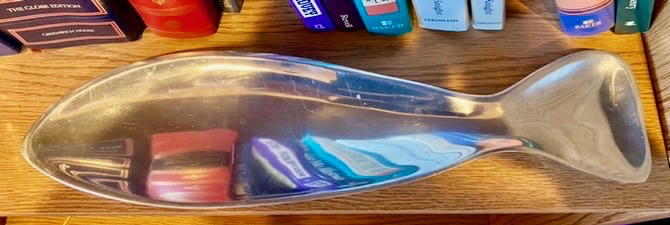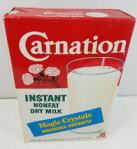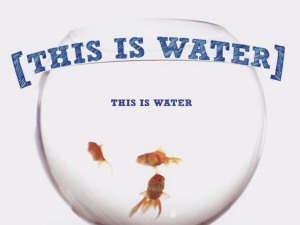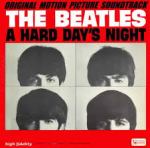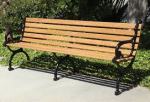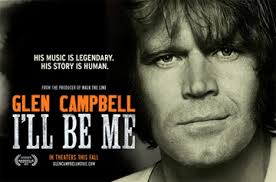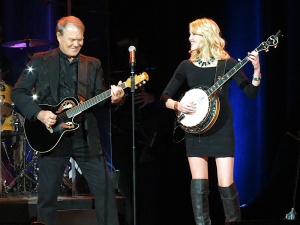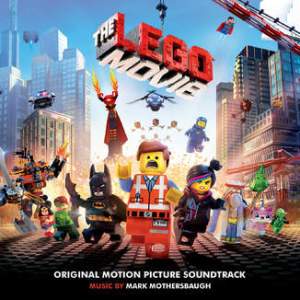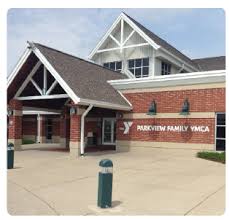The priority summer project for major marital brownie points was our Basement Clean Up and Clear Out: years of family photos spread across four corners of the ping pong table; disassembled trophy parts in boxes on the floor; postcards, letters, and a sundry of sentimentals scattered across a half dozen Costco folding tables including 20 Cedar Point key chains that needed to be chronicled and curated.
On my first reconnaissance downstairs to account for inventory and to consider removal options, I confess the lure of procrastination reeled me in. As I scoured the lower level for bulldozing strategies, at the bottom of the steps stood Kimball, our one-time-brand-new-electronic organ, who stared through me in stoic sternness and mumbled:
“Don’t even think about it.”
We had not spoken much in recent years, albeit, the geriatric organ and I have lived together and known each other for decades.
The Backstory:
A week before Deb and my wedding, my mom called to say she won 2nd place in a Purina Cat Chow contest. The prize was a $900 “Entertainer Super Star II” Kimball organ. She presented this musical jewel to us as a wedding present, so as newlyweds, Deb and I furnished our first home, the 10 x 50 foot 1964 New Moon trailer, with Mom’s Purina Cat Chow 2nd Place trophy.
An innovative wonder, Kimball has two keyboards and multi-color-coded controls with “magic chord” and “magic memory” buttons that allows such wizardry as to play a full chord by tapping a single key. The rhythm section includes Slow Rock and Soul Rock with the traditional Rock-n-Roll plus Rock, Latin, and Boogie beats in the “Swing Bass” section. This all may sound passé in the present day, but at the time to have such avant-garde, state-of-the-art synthesized sound inside our home created a brave new world of musical possibilities. Our esteemed high-tech organ resounded as the most expensive item we owned and cost almost half as much as our mobile dwelling.
These electronic marvels became the rage in the 1970s and 80s with new novelties such as rhythm accompaniments and the Magic Memory keys that delivered a cool concerto mix. To have this orchestral refinement in our first abode with such sonic sophistication conjured visions of the sheer rhapsody for all who would enter our newly christened made-for-sound 500 square foot home on wheels. They would open the front door of our trailer and behold! Kimball would shine with colorful keys and sleek veneer in pomp and glory, commanding attention and admiration from family, friends, and local tourists.
And what happened?
Nothing.
Forty plus years later, I concede that after the initial inspiration for concerts and songfests around the organ receded, or more accurately never transpired, its minimal usage did not transcend into anything grand. Cora worked out a deal with Kimball to house her 4th and 5th grade flute sheet music, and her middle school music books still repose on its music stand. On rare whims, someone might hit the tango or salsa buttons and toggle up the tempo, but through the decades, the bench has received more attention for extra seating and cup-holding than the organ has for hoedowns and hootenannies.
These “Entertainers” remind me of the Emperor’s New Clothes. The multicolored keys and innovative, synthesized technology upon first hearing sound smooth and unique and fashionable, but in time, even those of us unversed in the symphonic arts must admit these Kimballs, Wurlitzers and their ilk do not ring too acoustically pleasing even to the untrained ear. The oboe sounds like a slight cough; the flute sounds like the oboe with a cold; the banjo and mandolin sound like the oboe with a mechanized twang and everything sounds in similar nasal discomfort.
Musical instruments in good care tend to increase in value with age, but these organs end up on the street for trash pickup. The Goodwill and the Salvation Army will not take them. On Ebay, the first Kimball “Entertainer” auction I found was a Buy It Now for $1.00 one-dollar or “Best Offer” with free pick-up.
Although our organ-with-attitude has almost no monetary value and has stood unheard for the last few decades, and although Deb (who plays the ivories) has nudged me for years to send this unmelodious fixture to the dump, every basement cleanup results in the same conundrum: I cannot bring myself to part ways with this 1980s wooden washed up electronic basement dweller.
“And you’re not going through with it this time either, Mr. Clean,” Kimball bellowed as I stood akimbo at the bottom of the stairs attempting to steady myself for another basement stand-off.
“Well, Deb and I were thinking maybe it’s time—”
“I’m not going anywhere.”
“I mean it has been years—”
“Stop talking.”
Confused with how to proceed, I retreated up the steps and lost another showdown.
Regrouping over the next few summer days, I started to wonder: why did this musical chonker continue to survive every basement purge for the last twenty-plus years?
Marie Kondo, the modern guru of organizing clutter, may have an answer. She shares her KonMari Method (Cora bought Mom and me the book) with her five categories of tidying up and the fifth and final being sentimental value items. If one starts first with this last classification of sentimentality, then the cleanup job will never get done. These items are often too difficult to part with because of the meaning and memories attached to them.
Most of us accumulate mementos that have no value except the significance they have to us. These items are portals to the past. They connect us to events and places, and many connect us to people who matter in our lives. They serve as sparkler flashbacks that light up the long-ago with a twinkle and give our idiosyncratic items value—not to the culture at large, but to us. When we pass on beyond this place, the worth of our memorabilia will pass with us, unless others feel the urge to preserve such tchotchke.
No one will have the slightest clue as to why a big wooden salad bowl sits on top of a bookshelf in my office. The oversized basin came with six or eight wooden salad bowls that Deb pitched decades ago. I rescued the serving bowl because the whole set came as a wedding gift from two high school friends, Chris Nix and Dick Kelly. I’m not getting rid of the surviving bowl. The wooden tub came from two great friends and neither would remember that they gave it to us, but the gift connects me to my high school years, and I will not part with it.
In keeping with the wedding theme, I have a never-been-used silver fish dish, a chum-ugly piece of modern art that sits on a shelf in my office because Deb has threatened if ever seen swimming again in the kitchen cabinets, she will catch and release it to the trash. We received this silver serving tray as a wedding gift from a friend whom I met at five-years-old and who lived across the street from 4716 Indiana Ave. We went to Kindergarten together at Harrison Hill Elementary. He graduated from South Side High School and I went to Bishop Luers, but fifty-six years later, we still go out to eat for our October birthdays. I’m not getting rid of this minimalist fish dish that John Hogan gave us.
I have a wall of bookshelves filled with stranger things that have no value and mean nothing to anyone but me: one large fly from my eight-year-old birthday with a suction cup that stuck to my bedroom mirror for years. Then as a teenager my sister gifted me with a second giant fly that stuck to the lake cottage kitchen mirror for almost two decades. I have a half-century-old, six ounce red cup shaped like a cowboy boot from Mom and Dad: my sister had a blue one, and my brother had a yellow one. I lived the last semester of senior year in high school on the 5th Floor of the downtown YMCA, and when the building got demolished, I swiped a brick. More recently, the shelves house a Duke Cannon Big Brick of Soap that “smells like accomplishment” for Real Men that my nephew gave me a few years ago.



The nice feature about all these personal curios is they sit comfortably on my shelves, and I get away with keeping them sheltered out of sight in the safety of my office.
The difficulty with Kimball is that somehow, this giant electro music box, who has lost all youthful glow with a few broken teeth and a couple knobs that don’t work, has joined the ranks of these “valueless” sentimental objects.
Kimball’s longevity with us may account for my unwillingness to abandon this super-sized container of musical meh. From the beginning of Deb and my marriage, Kimball has traveled with us to live in three homes: the trailer where Kimball reigned as the centerpiece in the living room; Concordia Gardens where Kimball got demoted to the dining room and received an occasional play from family or friends; and our present “still new” home after 23 years, where Kimball has reposed in silence.
Perhaps, this wooden behemoth—being a special wedding present from Mom—may give the best explanation for its staying power. Maybe the eccentricity of Kimball’s former bells and whistles reminds me of my mom in a strange and good way. She loved music; she could bar chords on the keyboard; she made me take two years of piano lessons as a kid, and although I rarely practiced, I could navigate a few non-crowd-pleasing songs. The keyboard never became my medium of choice, but I appreciate her effort to steer me toward music and learning to play an instrument.
In October of 2022, Mom passed from this life, and our 15-year journey with her dementia came to an end. Ironically, rather than feeling this would be the time to part ways with Kimball, I may have become more attached to this minor-league music maker. When I turned it on for the first time in a decade, I played the few Beatles tunes I could remember. It still works for the most part and still sounds as nasal as Bob Dylan.
My sister, brother, and I had engraved on our mother’s headstone the following: “Our Mom: One of a Kind” and maybe Kimball reminds me of her. Maybe the slow letting go of my mom through the stages of her illness has a corollary with my unwillingness to send away this antiquated and outdated relic who no longer serves a musical purpose. I could not stop our mom from leaving and had no say over her departure. But as reflective as it sounds, I do have a say with what happens to the 2nd Place “Entertainer Superstar II” that Mom gave to Deb and me in our newlywed days.
Yet now, after almost 45 years of marriage, Deb and I have transitioned to the season of life where we attempt to find the balance between what to keep and what to throw away. And what does one do with this overweight brown hulk of musical furniture that hasn’t exercised in years and cannot be put on a shelf?
I will not give-in to the teenage impulse to place it on a random doorstep and ring the doorbell and run. I cannot bring myself to lug this cacophonous crate to the curb or to drop the mechanized double keyboard off the rooftop of a tall building or to take a road trip to the top of Mount Crumpit to dump it or to camp at Pokagon State Park and with a little help from my lighter fluid friend, sacrifice Kimball for firewood.
I would like to bake a loaf of magic bread for Kimball and shoo it into some enchanted, musical forest with an affectionate wave of farewell. But we don’t have any mythical woods nearby, and no way I could coax Kimball to climb into the car trunk to find one.
Perhaps, I will contact the Island of Misfit Toys to see if they will shelter a big-as-a-large-appliance-box, out of shape, and mediocre-talented musical instrument.
Perhaps, I will organize a Black Ops team with former high school students, whose mission, if they choose to accept, will be to kidnap Kimball in a nocturnal operative, and then drive-and-drop at midnight this musical monolith in the place where all American family dreams come true: the entrance to Costco. Good people shop there and maybe a Good Samaritan will take the organ home.
Perhaps, I will offer Kimball to the Smithsonian Institution for preservation and safekeeping in honor of my mom. If this iconic American institution declines, then fine, a more worthy treasury for our almost half-century-old organ will be found.
For now, Kimball will stay with me until an honorable closing ceremony and an appropriate recessional to our relationship are created and commenced. Apparently, I have trouble with “goodbyes” –especially the ones without some kind of significant final fanfare: a farewell handshake with photo ops or a thoughtfully handwritten thank-you or a meaningful last word oratory or a commemorative Costco cake. Call me sentimental, but I want a noble ending for Kimball and my relationship. I will not participate in some delinquent, ungracious pitching-dumping-dropping-trashing-and-walking-away ending.
In the end, my ambitious summer Clean-up and Clearance Project failed. I neither cleaned the basement nor said good-bye to Kimball. Social get-togethers, family adventures, knick-knack responsibilities as well as my Ferdinand-the-Bull wanderings through meadows and forests tend to vacuum up the summertime. I also place secondary blame on the unexpected, new family member, Blueberry Dog, who requires constant monitoring as she proceeds to chew up the house.
As August receded and school responsibilities ramped up, the ping pong and Costco tables remained loaded with pictures of Grandma Mills and Cora and family, and the floor looked like an obstacle course of overstacked clutter. Yet now, when I see the miniature-grand old organ, standing as a sentinel to the past, I feel better about the decision to stay together. I think Kimball does too.
“Have a good night,” I tell the multi-colored, electronic wonder in the evenings when I ascend the basement staircase after working in my office filled with doodads and whatnots and trinkets and bric-o-bracs.
“You too,” the venerable music maker pipes back.
Maybe next summer, I’ll finally get the family photos in albums with captions; maybe next summer, I’ll get all the trophy parts reassembled; maybe next summer, I’ll get all the Cedar Point Key Chains chronicled and framed. And maybe next summer, I’ll discover an appropriate farewell for Kimball.
But for now, to quote U2: I still haven’t found what I’m looking for.



